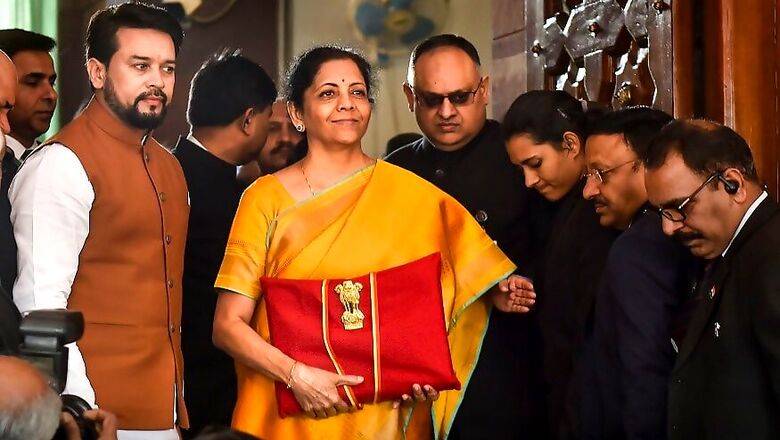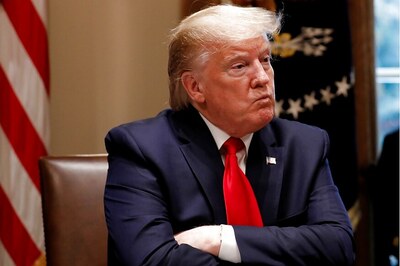Budget 2020: Swadeshi Jagran Manch Finds FM's Proposal to Introduce FDI in Education Retrograde Move

views
New Delhi: The Swadeshi Jagran Manch, an affiliate of the Rashtriya Swayamsevak Sangh (RSS) found Union Finance Minister Nirmala Sitharaman’s proposal in Budget 2020 to introduce foreign direct investment (FDI) in the education sector a retrograde move.
While the outfit’s national co-convener, Ashwani Mahajan, applauded the government for giving a boost to the manufacturing sector, he slammed Sitharaman for planning to allow FDI in education and tax concessions to foreign portfolio investors.
In her Budget speech, Sitharaman announced an allocation of Rs 99,300 crore for the education sector and Rs 3,000 crore for skill development, while stating the government’s plan to introduce FDI in the sector.
Mahajan told News18 this year’s Budget was considered the toughest of the decade. “Though the overall approach in the Budget coincides with Prime Minister Narendra Modi's appeal for the use of indigenous products, tax concessions to foreign portfolio investors and FDI in education should have been avoided as they are retrograde steps.”
He said the quality of education would be compromised with the new proposal. "It's not like our institutes would turn into Oxford (University) or Boston (University) overnight. We need to raise our own education standards by encouraging our institutes. The FDI move is exploitative," he said.
He said a broad vision was seen in the Budget in the form of provisions for the corporate world, foreign investors, infrastructure and personal tax reforms, while trying to increase the income of the common man and support the rural economy.
“For a long time, our manufacturing sector has almost remained stagnant. The capacity of domestic industries is not fully utilised, hence, the question of creating new industrial capacity does not arise. Since 2001, our trade deficit has increased from $6 billion to $176 billion which is almost 30 times.
“Unfortunately, the huge domestic market with a population of 135 crore is being served by products from foreign countries. The previous governments, which were overwhelmed by the concept of free trade, had not imagined that as a result of their continuous import tariffs reduction, our domestic industry was virtually destroyed, new capacity was not built and the youth of our country remained jobless.
“On the other hand, small businessmen started losing livelihood due to new business models in e-commerce,” Mahajan said.
“To discourage imports, the finance minister has said the rule of origin will be implemented in the free trade agreements made by previous governments. The effect will be that flow of Chinese goods that enter India through ASEAN countries under the guise of free trade agreements will be curbed,” he said.
In addition, in line with its earlier policy of increasing tariffs on electronics, telecom products and textiles, the government is now increasing tariffs on items like furniture and medical devices.
“This will lead to the setting up of new industries. This move can support PM’s ‘Make in India’ policy and help boost manufacturing, income and employment generation in the country. This also furthers Modi’s appeal to citizens to use indigenous products,” Mahajan added.
Till now, the attitude of policy makers has been that there is no scope of increasing employment in agriculture and rural areas, but this government has managed to break that view, he said.
"The budget has prepared a 16-point action plan to generate wealth, income and employment in rural areas, particularly in fisheries, horticulture and other non-farm activities. This is a welcome move,” Mahajan said.


















Comments
0 comment